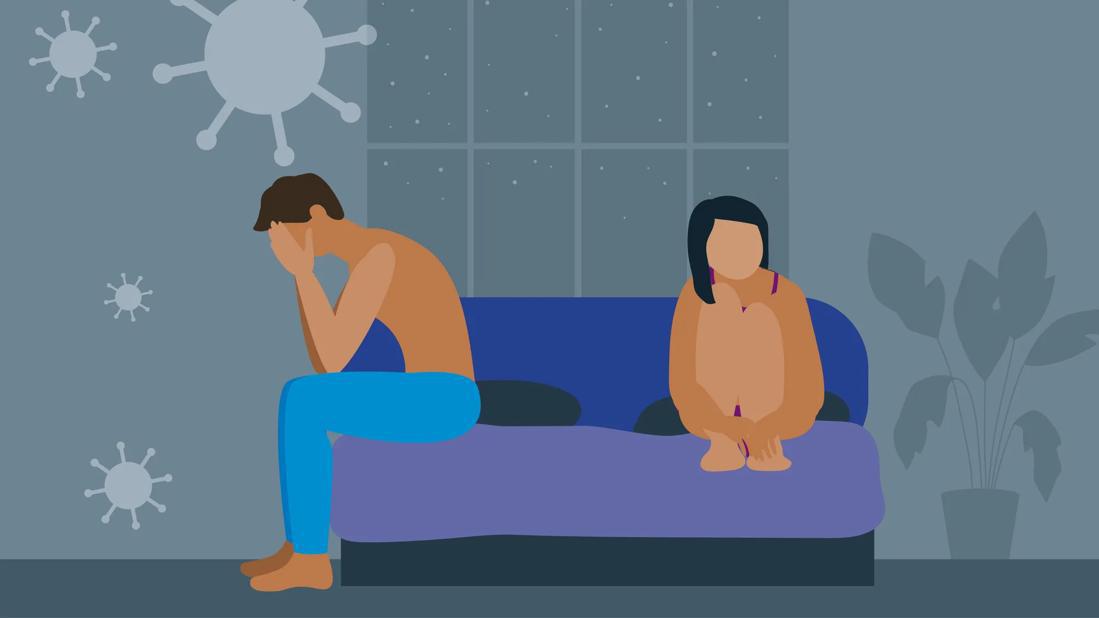Can COVID-19 Cause Erectile Dysfunction?
Research shows the virus can affect your ability to get or maintain an erection

If you’re suddenly experiencing erectile dysfunction (ED), it might be connected to something you wouldn’t necessarily expect — a recent COVID-19 infection.
Studies show that COVID-19 may increase your risk of ED or worsen the condition if you’re already dealing with an inability to get or maintain an erection. Why is this? Let’s look at the possible factors with urologist Ryan Berglund, MD.
How does COVID-19 affect erections?
Research points to three factors that could lead to the onset of ED after getting COVID-19:
- Vascular effects.Erections are powered by blood flow to the penis. COVID-19 can cause cell damage in blood vessels that restricts blood flow and reduces erections, says Dr. Berglund. (Inflammation caused by COVID-19 is also a contributing factor.)
- Psychological impact. Sexual activity is closely associated with mental health. Stress, anxiety and depression linked to COVID-19 could also be a driving force behind sexual dysfunction.
- Overall health.ED is often a symptom of an underlying health issue, like heart disease or diabetes. COVID-19 can worsen those issues and weaken your erection. “It can be a sign of something more serious going on, particularly in young and healthy people who abruptly develop ED after having COVID-19,” notes Dr. Berglund.
Age is also an important aspect to consider, as it’s a risk factor for developing both ED and a more severe case of COVID-19.
“We know there are several different ways that the virus could cause erectile dysfunction, but much more research is needed before we know for sure and if there are long-term effects,” he adds.
Can COVID-19 affect testosterone?
Studies show that testosterone levels often drop following a COVID-19 infection and may stay down for months before rebounding. In severe cases, the virus can cause testicular damage and dysfunction.
But low testosterone doesn’t necessarily lead to ED. While there are connections, low T and ED are separate health issues involving different systems in your body. (Learn more about the relationship between low T and ED.)
Can you prevent COVID-19-related ED?
Protecting yourself against COVID-19 is the best way to avoid issues related to the virus, says Dr. Berglund. That means staying up to date on your COVID-19 vaccinations as new variants and subvariants emerge.
Other prevention strategies include:
- Washing your hands regularly. Hand sanitizer works in a pinch, too.
- Avoiding contact with people who are sick. (On the same note, keep to yourself if you’re not feeling well.)
- Maintaining a healthy lifestyle when it comes to diet, exercise and sleep to help boost your immune system.
Treatment for COVID-19-related ED
First, the good news: According to Dr. Berglund, it does appear that COVID-19-related ED improves over time, so the situation may be temporary. Researchers found that erections often return to their regular stiffness within three months.
In the meantime, talk to your doctor about your options, including ED medications. They may check for underlying causes (such as cardiovascular issues) that may be contributing to your ED.
Final thoughts
While COVID-19 is a respiratory illness, we know it extends far beyond our lungs when it comes to harming our bodies. ED is just one example.
The virus also has been connected to an increased risk of blood clots. There’s evidence it may contribute to the development of Type 2 diabetes, too. And it has been linked to seizures, sleep disorders, tinnitus (ringing in your ears) and many more issues.
“All of these are examples of possible long-term effects of COVID,” states Dr. Berglund. “Time and more research is needed to give us a better understanding of what the virus can do.”